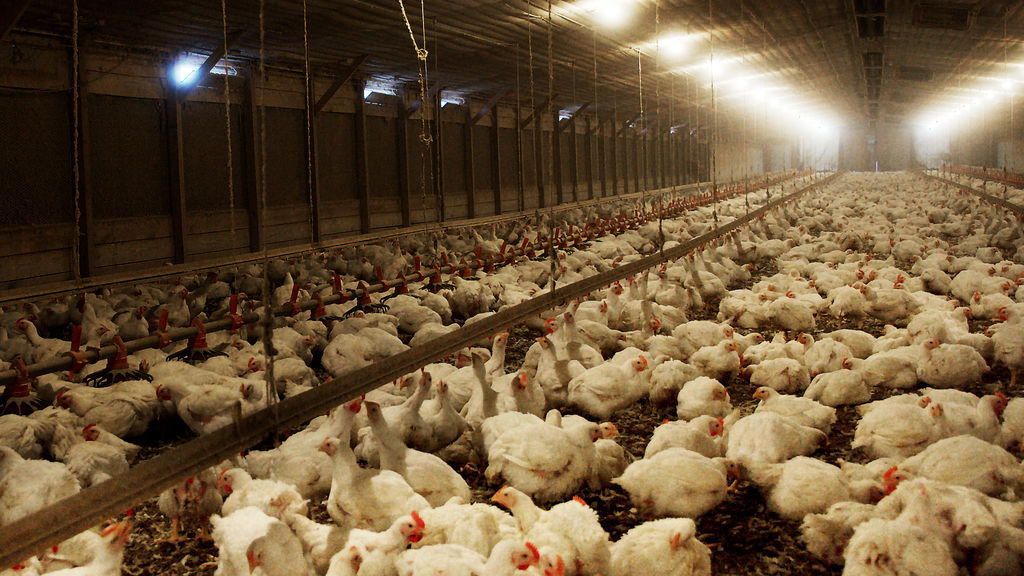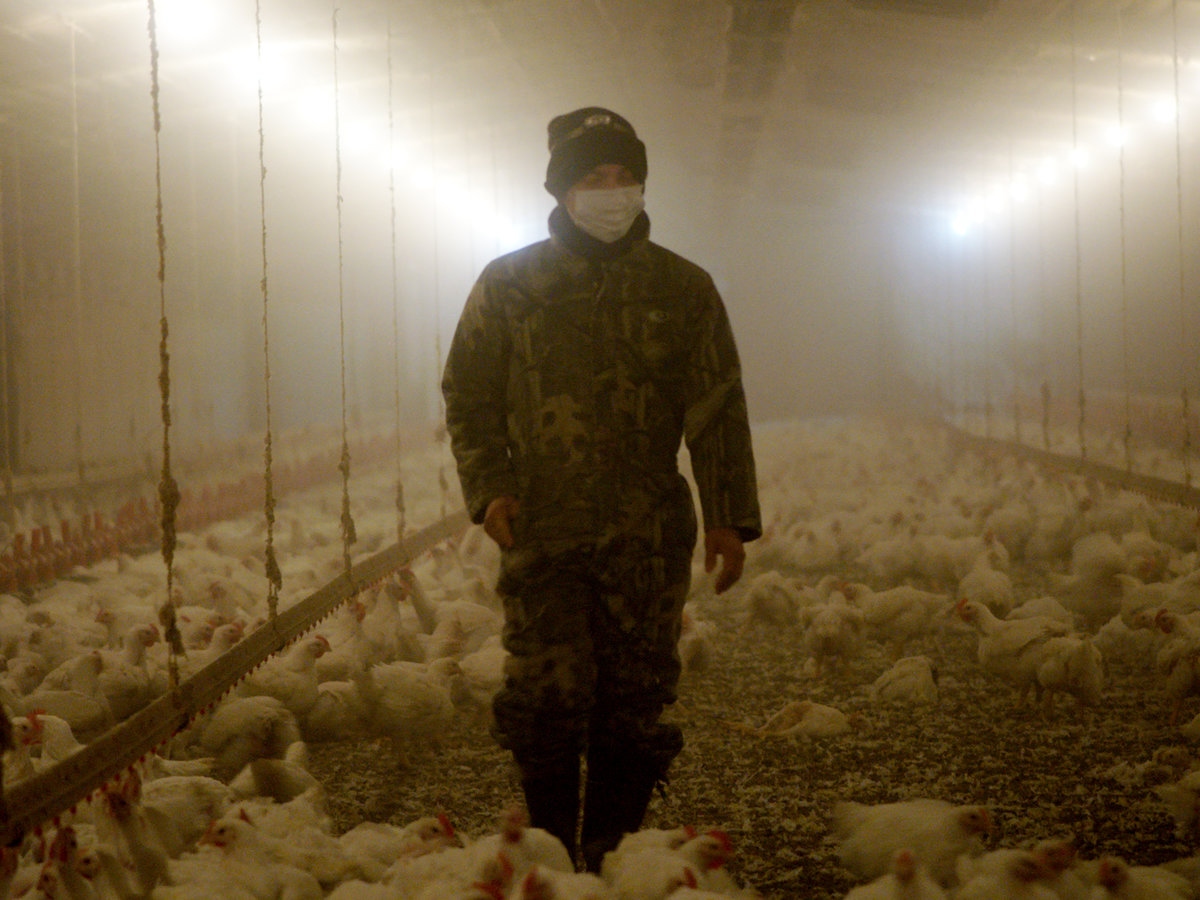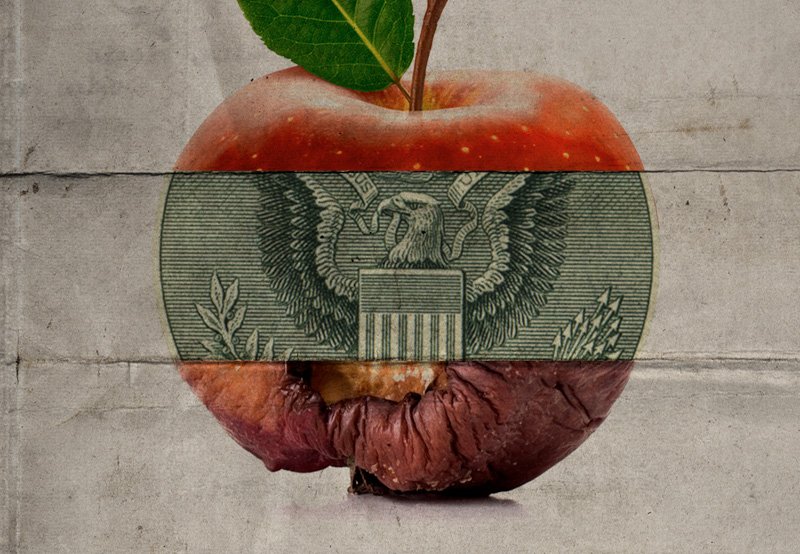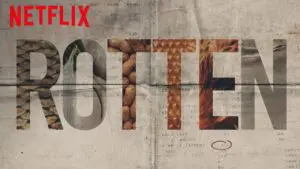Rotten is a six-episode Netflix Original documentary series that buries a questing fork deep into the underworld of global food production. It takes a look at your dinner plate as if through a gumshoe’s magnifying glass. The crumbs and the money lead along intertwined supply chains to nexuses of corruption, greed, waste and scandal, exposing the – intended or not – shocking consequences of your everyday eating habits.
As if you didn’t feel bad enough about stuffing your fat face over Christmas.
Is this another scaremongering documentary?
No, not really. Rather than zeroing in on a specific, heartstring-pulling topic like, say, the ethics of the meat production industry, Rotten casts a wider net. Across the six episodes, it explores unusual topics to take aim at unusual targets. Corporations, regulators, retailers, distributors, restaurateurs – everyone is culpable. The series has a sober, critical tone that’s more reminiscent of Netflix’s popular true-crime Originals such as The Keepers and Making A Murderer.
That isn’t to say Rotten doesn’t have an agenda. It explicitly asks you to reconsider your food choices. But it’s provoking a more intellectual outrage. The reliance isn’t on images of cute, fluffy animals being reared and slaughtered. It’s fact-based and investigatory. Each episode includes countless talking heads and statistic-driven narration that peels back layers of corruption, fraud, and corporate finagling. You’ll be outraged, remorseful – probably a little bit disgusted. But mostly because you’ll feel exploited and manipulated by greedy big business. Nobody likes being taken for a mug.
Huh. Netflix seems to like this kind of thing, don’t they?
Yes, they do. The streaming platform never reveals its viewership numbers, but it doesn’t take much sleuthing to figure out that the true-crime genre must be doing impressive numbers for them. Even satire like American Vandal and period drama like Manhunter has a distinct twist of exposé DNA. Rotten is more of a contemporary to those shows than to the output of its own production company. But that longstanding experience in foodie television certainly helps. Zero Point Zero, who brings us the series, is also behind five-time Emmy- winner Anthony Bourdain: Parts Unknown and the long-running The Mind of a Chef.

So, what kind of topics are we talking about here in Rotten?
The opening episode, “Lawyers, Guns and Honey”, focuses on the global honey industry. This is much more complex than you might imagine. Beekeepers, I was kind of expecting. But news to me was “Honeygate”, the largest food fraud investigation and prosecution in history, in which United States Customs busted a smuggling ring of importers and packers who were sneaking inferior honey from China via Australia.
“The Peanut Problem”, episode two, deals which a much more common problem: Allergies. Everyone knows someone who’s allergic to something. Insufferable, most of them. I have a friend with a peanut allergy who once crossed the street because someone had left half a Snickers on the ground. I must make a mental note to tell him not to watch this episode, which peels back the shell – ahem – of food allergies, the growing science of physiological tolerances, and the responsibility – or lack thereof – of restaurateurs to care for their customers.
(One of the most “oh, fuck” moments here is when an Indian restaurant in England uses cheaper peanuts as a substitute for almonds and almost kills someone who explicitly stated they had a peanut allergy.)
Whoa.
Yeah, I know. The girl literally brought it up. Of course, that’s anecdotal. There’s no proof that she really did inquire about the nut content of chicken korma. But it’s believable. Would the front-of-house staff know exactly what was going on in the kitchens? Would the kitchen staff know exactly what was being ordered from suppliers? Someone’s fucking someone over somewhere, but Rotten has a knack for highlighting the biggest danger, which is that we rarely know who, exactly, is doing the fucking.
What else?
The third episode, “Garlic Breath”, returns to the trade relationship between the U.S. and China. Rotten has some recurring themes and motifs. Trade is one of them – particularly trade that is lucrative and controversial. Another is the relative superiority of organic, naturally-sourced food, which at this point should be common sense. Rotten isn’t preachy about this, but it’d be tough to complain if it was. The supply chain is so riddled with weak links that it’s almost impossible for anything to get to your plate without someone or something suffering along the way.
Not that you can rely on the local family farm, either. “Big Bird”, the fourth episode, ruffles the feathers of the chicken farming industry. This is always a popular one. Whenever a vegan tries to tell you you’re a monster, they always tell you about how bad chickens have it. And they’ve got a point, to be honest. I like a Nando’s as much as the next guy, but it’s worth giving a respectful nod to your plate before you tuck in.

It’s always easier to care when it impacts you, right?
Right. I drink cow’s milk, too, so episode five, “Milk Money”, was a bit of a downer as well. That one looks at how a thirst for higher profits – another of Rotten’s and indeed life’s recurring themes – has led some dairy farmers to produce “organic” milk and sometimes even “raw” unpasteurized milk, which is naturally rife with pathogens that can quite easily kill you. I liked this episode because it ensured that even the hipsters aren’t safe. You might be into upscale organic milk, and I’m sure you’ll tell everyone you meet all about it, but that won’t stop some greedy farmer in a flat cap giving you the shits for a week.
The sixth and final episode, “Cod is Dead”, dives into the government regulation of fisheries in the wake of overfishing in New England. The unexpected, industry-wide ramifications opened the newly-consolidated industry up to massive criminal exploitation. It’s a worrying thought that even people without a vested interested in the production or consumption of the product can meddle to such an extent that ordinary folks suffer. Then again, I guess that’s kind of what being a criminal is all about.
Did you enjoy Netflix’s Rotten?
Not at all – which is entirely the point.
Any issues with it?
Yeah, sure. I think in some instances the series drastically overestimates people’s understanding of legalese, and their tolerance for long-winded legislative battles which don’t really amount to much beyond a clause here and there that may or may not minutely affect supply-and-demand in some nebulous way. It also has a tendency to reiterate some of its arguments by flatly repeating them in slightly difference circumstances, just in case you missed the point the first time.
These are minor criticisms, though. Even amid the relatively dry reporting on legality and trade agreements and suchlike, the episodes do a good enough job of latching onto a core point. Even during the occasional long stretch of reiterative expert testimonies, you never really lose the sense of what that point is. Drifting off a little doesn’t hurt too much. And padding the runtime of each episode is regrettable, sure, but also pretty much a standard part of any Netflix Original production at this point.
Recommendation?
It doesn’t have the immediate impact of, say, Cowspiracy, but that isn’t the point. Rotten’s greater triumph is letting you know that even if you suddenly decide to renounce meat and dairy and purchase your cruelty-free, organic, non-GMO, grass-fed grub entirely from vaping hipster salesman in artisanal specialist stores at 400% mark-up, you’re still a prick.
That’ll do me. Happy new year.




